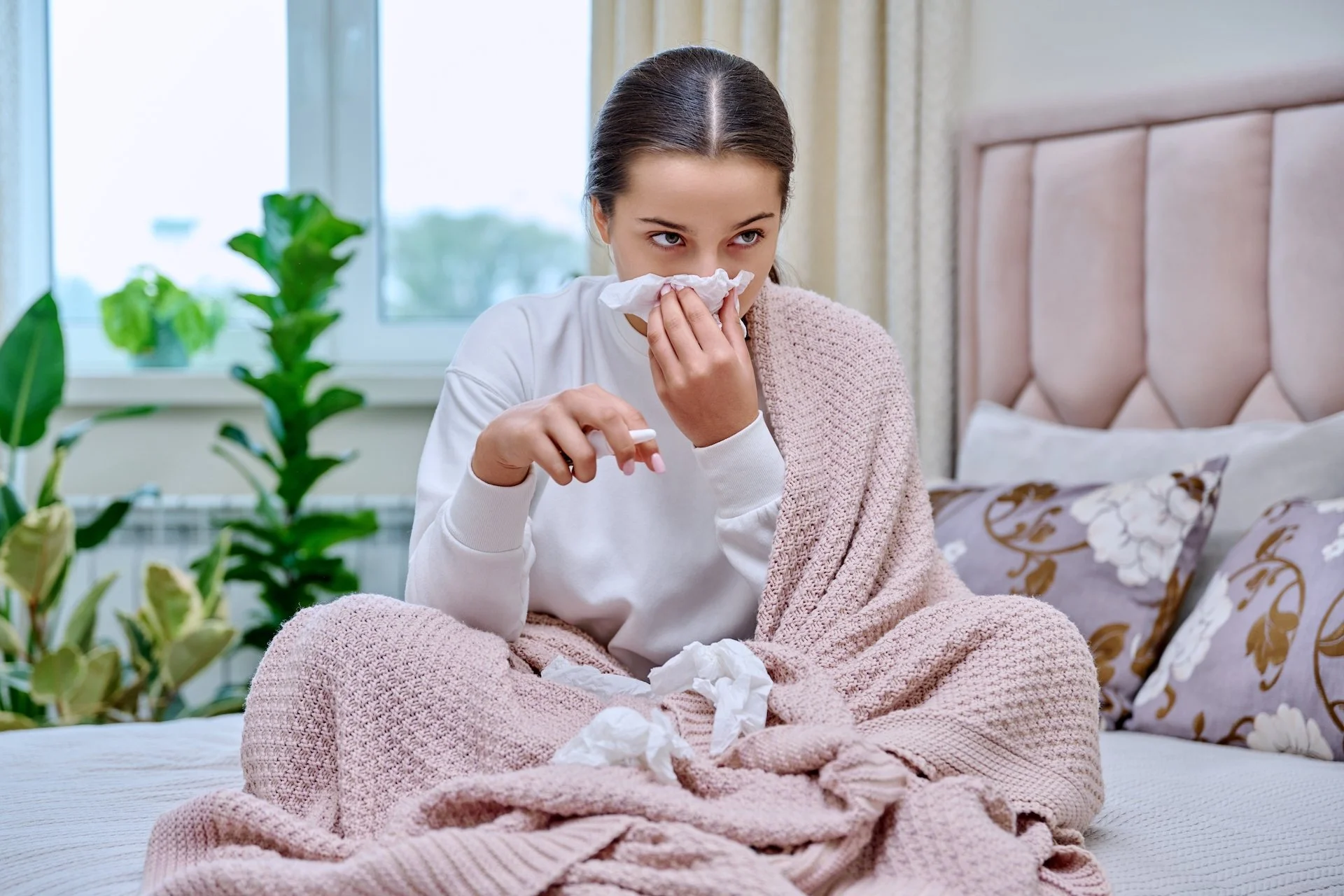While you may hear a lot about allergies in the springtime, they’re common in the fall as well. With seasonal pollen and a change in weather, sinus infections are increasingly common. According to the American college of Allergy, Asthma & Immunology, 50 millions Americans experience allergies each year and allergies are the sixth leading cause of chronic illness. That’s why we’ve put together a list of ways you can take care of your sinuses and keep yourself healthy.
Here are some ways you can take care of your sinuses:
Drink Plenty of Water
Use Nasal Irrigation
Get Enough Rest
Regularly Change the Air Filters in Your Home
Use Over-The-Counter Remedies as Needed
Contact us today to learn how our specialists can help you with your sinus problems.
Drink Plenty of Water
In order to keep your nasal passages clear and prevent the build up of too much mucus, you’ll need to be sure to drink plenty of water. This will prevent stagnant mucus from building up in your sinuses and lungs and prevent your nasal passages from drying up.
Use Nasal Irrigation
Rinsing out your sinuses is a great way to remove irritating particles and allergen from your nasal passage. This can be done using a saline solution which is a mix of water and table salt. For example, you can boil two cups of water for 15 minutes and once cooled, you can add a teaspoon of salt until it’s dissolved. It can be refrigerated in an airtight container for up to 24 hours.
Get Enough Rest
Everyone knows that not getting enough sleep affects your health. But did you know that it has a big impact on your sinuses? Lack of sleep leads to a decrease in immune function and gives your body less time to recover what it may be going through. Generally, it’s best to get at least six to eight hours every night.
Regularly Change the Air Filters in Your Home
Pollutants in the air like hair spray, harsh cleaning products, and cigarette smoke can all make your problems worse. You can also bring in polluted air into your home if you’re frequently leaving the windows open. Air filters will help clear the air as they're designed to filter out contaminants and reduce particles that contain viruses. To best remove moisture and pollutants from the air, it’s recommended that you change your air filter every 90 days.
Use Over-The-Counter Remedies as Needed
Taking over-the-counter medications is a way to help combat and reduce your symptoms if other methods haven’t helped.
Here are some over-the-counter remedies you should consider using:
Decongestants: Nasal or oral decongestants can help reduce the amount of mucus in your lungs and nasal passages. This will help with things like difficulty breathing through your nose and aching lungs from frequently coughing. However, be sure to limit the amount of medicine you take as it can lead to side effects or complications like dizziness and high blood pressure.
Antihistamines: This medicine is designed to block or limit the activity of histamine, a substance your body produces during an allergic reaction. This can help with things like a runny nose or hay fever.
Expectorants: Another way of dealing with mucus is through expectorants which is found in many cold and flu medications. As it makes mucus thinner, it’s easier for your body to get rid of.


